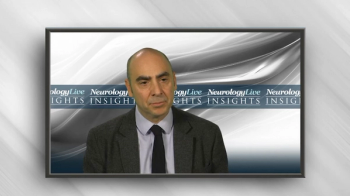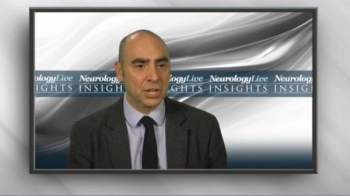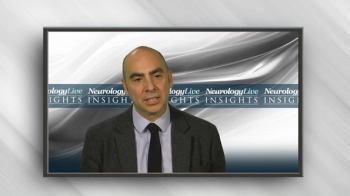
Study results suggest that unexplained seizures in older adults may also be a first sign of a neurodegenerative disease.

Study results suggest that unexplained seizures in older adults may also be a first sign of a neurodegenerative disease.

New data suggest that brain changes in the posterior cingulate cortex and precuneus as a result of SDB may increase the risk of Alzheimer disease, supporting prior findings which imply a link between the conditions.
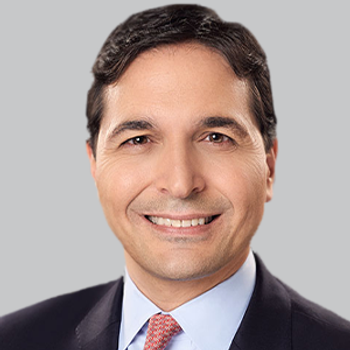
Researchers noted at least a 50% reduction from baseline in mean number of moderate to severe migraine days per month in 48% of the rimegepant group.

Data suggests that the longer the extubation time following mechanical thrombectomy, the higher the risk of unfavorable outcomes and pneumonia.

Study data suggest that even in early disease, motor complications are common and accompanied by a greater burden of nonmotor symptoms than previously known.

ImStem Biotechnology plans to initiate a phase 1 study of the human embryonic-mesenchymal stem cell agent sometime in 2020. Preclinical data suggest its potential to reduce MS relapses and disability progression, and encourage disease arrest.

Neurology News Network for the week ending March 28.

Take 5 minutes to catch up on NeurologyLive's highlights from the week ending March 27, 2020.

The president and CEO of Engage Therapeutics, along with the company’s executive VP and COO, discussed its investigational Staccato alprazolam product in the abortive treatment of seizures.

By the end of the open-label extension, 15-17% of patients showed clinically meaningful first response with eculizumab treatment.

Real-world, observational cohort data suggest that Biogen’s nusinersen (Spinraza) is safe and effective in the treatment of spinal muscular atrophy.

Preliminary data from the ASPIRO study of Audentes Therapeutics resamirigene bilparvovec gene therapy suggests it is safe with improvements in neuromuscular and respiratory function.

Pear Therapeutics’ Somryst intervention provides tailored neurobehavioral interventions intended to improve the symptoms of insomnia, via cognitive behavioral therapy and algorithm-driven sleep restriction.

Patients with spinal muscular atrophy maintained the ability to thrive and achieved motor milestones previously unseen in natural history studies.

Although the drug requires no CYP2C9 genotyping or first-dose observation, an up-titration scheme should be used due to the risk of transient cardiac conduction issues.

The novel oxybate agent is seeking an indication for the treatment of cataplexy and excessive daytime sleepiness in those 7 years and older with narcolepsy. The PDUFA date is July 21, 2020.

Catabasis’s small molecule NF-kB inhibitor showed promise in phase 2, and the phase 3 PolarisDMD study (NCT03703882) of edasalonexant is fully enrolled and expected to read out in late 2020.

In addition to no-charge testing, patients may have access to the Detect Muscular Dystrophy program, a counseling program designed to aid health decisions and follow-up care.

Nearly all patients in this cohort achieved a clinically meaningful >3-point increase during the study period, demonstrating a consistent response to the gene therapy.
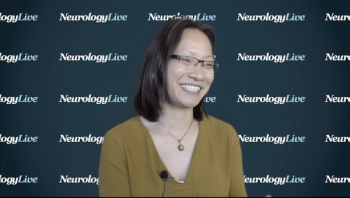
The director of the Multiple Sclerosis Program at Cleveland Clinic’s Lou Ruvo Center for Brain Health detailed what can currently be surmised about siponimod’s effect in treating patients with SPMS.

Axsome Therapeutics has accelerated the completion of its phase 2/3 trial of AXS-05 in patients with Alzheimer disease agitation, with top-line results now expected to read out in Q2 2020, a full quarter ahead of the prior scheduled time.

Data from the DELOS and SYROS studies of idebenone suggest that investigational DMD treatment has a treatment effect maintained for up to 6 years, which can reduce hospitalizations, bronchopulmonary adverse events, and systemic antibiotic use.

No unexpected safety signals were reported in the post hoc analysis.

After meeting co-primary end points of pain freedom and freedom from the most bothersome symptom, the acute migraine agent has been cleared for a phase 3 trial by the FDA.
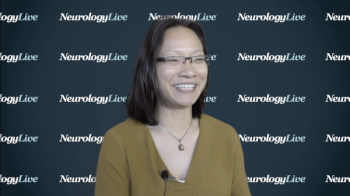
The director of the Multiple Sclerosis Program at Cleveland Clinic’s Lou Ruvo Center for Brain Health discussed the findings of a subanalysis of the EXPAND study of siponimod in patients with secondary progressive multiple sclerosis.

Eligible patients with Duchenne muscular dystrophy may receive the drug while it is under priority review by the FDA.
